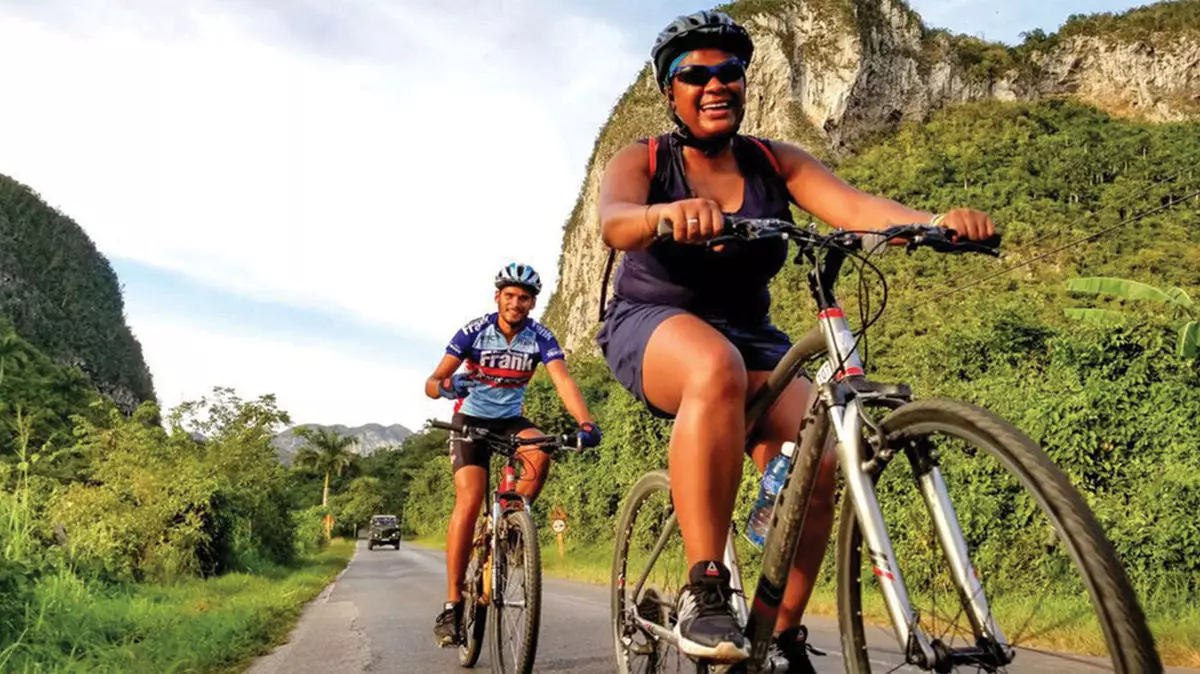The Cuban tourism sector is enduring a challenging chapter, marked by a confluence of natural disasters, deteriorating infrastructure, and political complexities. Once a burgeoning gem in the Caribbean tourism market, highlighted by a peak during the Obama administration, Cuba now faces an uphill battle as it strives to recover and attract visitors amid a myriad of obstacles.
Recent Natural Disasters Take Their Toll
Cuba has recently been battered by a series of devastating natural events, including hurricanes and earthquakes, that have compounded existing difficulties within the tourism sector. Tour operator Jesus Noguera of Cuba Careo Tours described the situation as one of the most severe crises in the industry’s history, citing a nationwide blackout and the aftermath of two hurricanes: Oscar and Rafael, which struck in quick succession. The challenges did not end there, as the country also experienced a significant earthquake, rattling the already fragile infrastructure.
The cumulative effects of these disasters have been palpable. A report from the National Statistics Office of Cuba reveals that international visitor numbers remain starkly low, with only about 1.7 million arrivals recorded in the first nine months of 2024—only half of the numbers enjoyed just five years prior. This stark decline reflects the consequences of both natural calamities and long-standing structural issues that plague the nation.
Infrastructure: A Lingering Concern
Cuba’s ability to bounce back from these adversities is intricately tied to the state of its infrastructure. Many facilities, including power plants dating back to the Soviet era, require urgent modernization to maintain reliability. The persistent grid failures coupled with a lack of dependable fuel sources pose significant hurdles for tourism recovery. Noguera emphasized that these structural weaknesses have been a long-standing roadblock, exacerbated by the complexities of sustained inflation within the country.
This scenario paints a bleak picture for the tourism industry in Cuba, as restoration becomes more urgent than ever. Experts warn that without substantial investment and improvements in infrastructure, the country may struggle to regain its positioning on the tourist map.
Interestingly, while the overarching tourism numbers appear concerning, tour operators indicate a degree of resilience. Reports suggest that most travel activities continue as scheduled, particularly in key areas like Havana. Operators are adapting to the circumstances by providing clear communication to clients, ensuring they understand what to expect amid power outages and operational changes. This proactive stance allows guests to feel more secure and prepared during their travels.
Noguera, for example, is committed to reassuring travelers despite their apprehension. He recommends engaging with private tour operators or guides, emphasizing the thriving private sector within Cuba’s tourism ecosystem. As the local businesses flourish, travelers can enjoy cultural experiences with confidence, thanks to the existing networks of private accommodations and restaurants.
Amidst these challenges, the high-end tourism segment appears to be weathering the storm well. David Lee, owner of Cultural Cuba, touted impressive growth that contradicts the broader trends plaguing the sector, indicating a staggering 400% increase in business since 2019. This disparity suggests a potential shift in consumer behavior, where affluent travelers seek customized, unique experiences despite broader accessibility issues.
In terms of operational challenges, Lee noted that most of Havana was able to restore power swiftly after outages caused by recent hurricanes. Such resilience allows certain operators to maintain their appeal and customer base, adapting rapidly to emerging issues while promising quality experiences.
The Political Landscape: An Ongoing Risk
Despite the resilience of certain facets of the tourism sector, looming political changes in the United States present another layer of uncertainty. The potential re-emergence of restrictive policies could overshadow any efforts aimed at revitalizing tourism.
The nomination of Florida Senator Marco Rubio, a vocal critic of the Obama administration’s relaxed travel policies, raises eyebrows amongst industry insiders. Though Lee expresses optimism about navigating these political waters, there is a nagging concern on how a forthcoming administration might influence American travel to Cuba once again. The past has shown that sudden changes in policy can rapidly shift the paradigm, and the tourism sector remains ever-watchful.
Cuba’s tourism industry stands at a crossroads, grappling with natural disasters, infrastructure decay, and the unpredictable nature of global politics. While recent events have undoubtedly hindered progress, the adaptability of tour operators and the continued interest from travelers signify resilience amid adversity. As Cuba seeks to navigate these turbulent waters, the future of its tourism sector remains closely tied to investments in infrastructure and an ever-watchful eye on international relations. Only through concerted efforts can Cuba hope to reclaim its status as a premier Caribbean destination.


Leave a Reply